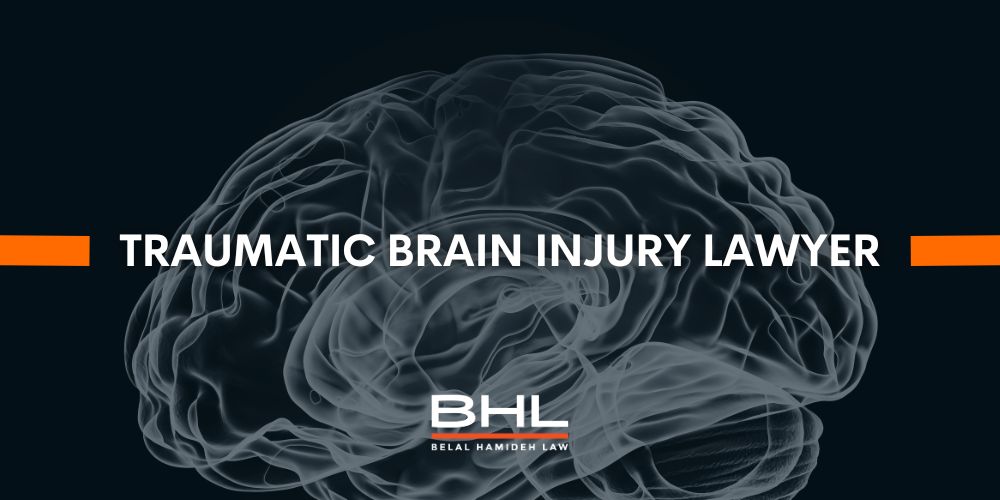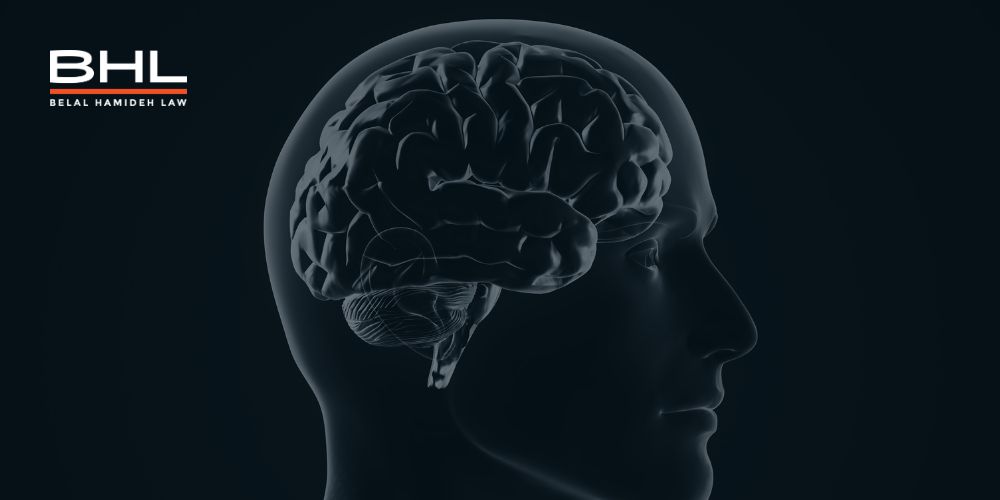One of the most serious injuries a person can suffer in an accident is a traumatic brain injury. Traumatic brain injuries are considered catastrophic injuries because they can change a victim’s life in an instant. They can also lead to permanent brain damage and medical complications.
If you or a loved one suffered a traumatic brain injury due to someone else’s negligence, you will need skilled legal representation. A traumatic brain injury attorney in Long Beach, CA, from
Belal Hamideh can discuss your legal rights and options, identify all parties responsible for your injuries, and fight for the financial compensation you deserve. Call us today to take advantage of a free, no-obligation consultation.

What Is a Traumatic Brain Injury?
A traumatic brain injury (TBI) is a brain injury caused by an outside force, such as a sudden and violent blow or jolt to the head or body, according to the National Institute of Neurological Disorders and Stroke. Penetrating objects can also cause TBIs.
Some types of traumatic brain injuries cause temporary problems with brain function that affect how a victim thinks, understands, communicates, and behaves. More severe forms of TBI can cause severe and permanent disability. Some severe traumatic brain injuries cause death.
Common Causes of Traumatic Brain Injuries
The United States Centers for Disease Control and Prevention (CDC) reports that approximately 69,000 people die in the United States from traumatic brain injuries every year. Leading causes of traumatic brain injuries include:
- Car accidents
- Slips and falls
- Firearms
- Child abuse
- Elder abuse
- Assaults
- Dangerous products
- Workplace injuries
If you suffered a brain injury because of someone else’s negligence, you may be owed compensation for your medical bills, lost income, and other financial and emotional losses. An experienced personal injury attorney from our firm can help you pursue compensation for your TBI claim.
Types of Brain Injuries
Healthcare providers generally divide traumatic brain injuries into three categories: mild, moderate, and severe. Mild TBIs can affect brain cells temporarily, but moderate and severe TBIs can cause bruising, torn brain tissue, bleeding, and other physical damage, potentially resulting in long-term complications or death.
Symptoms of Traumatic Brain Injuries
According to the Mayo Clinic, TBIs can have wide-ranging symptoms, including the following:
Physical Symptoms
Physical symptoms may appear immediately after the accident or in the days following it. These symptoms may include:
- Loss of consciousness
- Severe headache
- Nausea or vomiting
- Convulsions or seizures
- Dilation of the pupils
- Clear fluids running from the ears or nose
- Unusual tiredness
- Difficulty sleeping or sleeping too much
- Being difficult to awaken
- Speech problems
- Dizziness or loss of balance
- Loss of sensation in the fingers and toes
More severe brain injuries tend to result in more severe symptoms.
Cognitive Symptoms
Brain injuries can cause loss of normal brain function, which can result in the following:
- Coma or other consciousness disorders
- A feeling of being dazed and confused
- Problems concentrating or remembering
- Slurred speech
- Difficulty expressing yourself
Sensory Symptoms
Brain injuries can also be noted by sensory symptoms, such as:
- Ringing in the ears
- Blurry vision
- Loss of vision
- Sensitivity to light or sound
- A bad taste in the mouth
- Changes in the ability to smell
Emotional Symptoms
Brain and head injuries can also have psychological effects, such as:
- Mood changes or mood swings
- Feeling depressed or anxious
- Angry outbursts
- Feeling agitated or annoyed
Carefully monitor anyone who has suffered a head injury, as they may have an untreated TBI.
Possible Complications Stemming from Traumatic Brain Injuries
Because the brain is such an integral organ, any disruption to its function can result in significant complications, including:
- Consciousness disorders: Severe brain injuries can result in coma, a vegetative state, or brain death.
- Other medical conditions: Suffering a TBI can result in victims suffering other serious medical conditions, such as:
- Seizures
- Dementia
- Neurological disorders
- Tremors
- Gastrointestinal issues
- Heart issues
- Blood pressure changes
- Cognitive impairments: Severe brain injuries can cause difficulty communicating with others verbally or in writing, holding conversations, or keeping thoughts organized.
- Emotional conditions: Some TBIs can cause lasting emotional problems, such as anxiety, depression, mood disorders, or psychiatric disorders. Brain injury victims may have difficulty controlling and regulating emotions.
- Relationship problems: Some TBIs can disrupt a person’s life, routine, ability to work, and relationships with others. They may have to rely on a loved one for daily care, changing the dynamics of their relationship and making them dependent in a way they never wanted to be.
If you or a loved one is suffering from any of these complications, contact a caring brain injury lawyer from our firm for a free case evaluation.

Financial Compensation for Traumatic Brain Injuries
Traumatic brain injuries can lead to permanent harm and irreparable damage. They can cause significant disruption to the lives of victims and their families. Through a personal injury claim, you can seek compensation for your economic and non-economic damages.
Economic damages compensate victims for the direct, financial losses they suffered due to the accident, such as medical bills. Non-economic damages compensate for intangible losses, such as pain and suffering.
Damages that may be recovered in a personal injury case may include the following:
Medical Expenses
Medical expenses alone can add up to a significant sum. Some TBIs require medical treatment in an intensive care unit and/or surgical intervention. Our personal injury lawyers can include the costs of your medical treatment in your legal claim, including:
- Hospital stays
- MRI scans and other imaging tests
- Lab work and diagnostic tests
- Rehabilitation therapies
- Specialist visits
- Follow-up visits with your primary care physician
- Assistive medical devices
- Prescription medication
- Life care planners
Your medical records can help indicate these costs and the effects of your injuries on your life.
Lost Wages
TBIs can cause significant wage loss as the victim recovers and seeks medical attention. You can pursue compensation for your lost income, including:
- Hourly wages
- Salaries
- Tips
- Commissions
- Bonuses
- Lost employment benefits
- Vacation time and sick leave
Your check stubs, letters from your employer, retirement account statements, and income tax returns can help demonstrate the value of these economic losses.
Loss of Earning Capacity
In addition to your current lost wages, you can also seek compensation for your lost or reduced earning capacity if you are unable to work after the accident or you have to take a lower-paying and less-demanding job. A vocational expert can help determine the value of your lost earning capacity by considering factors, such as:
- Your career, job, and industry
- Your job skills
- Your education
- Your age
- Your job history and history of promotions
Our law firm can connect you with a qualified vocational expert who can help support your claim.
Property Damage
If any property was damaged in the accident, such as a vehicle in an auto accident, you can seek compensation for the costs to repair or replace the damaged property.
Home Modifications
If you have to make modifications to your home to accommodate a disability, you can request compensation for these renovation costs.
Pain and Suffering
Traumatic brain injuries can be excruciating and can cause additional complications. You have the right to seek fair compensation for your physical pain and suffering, as well as the discomfort you have endured.
Emotional Distress
You can also seek compensation for your emotional pain and suffering, including mental anguish, emotional distress, and psychological trauma caused by the accident. If you need counseling services, you can seek compensation for these medical costs, too.
Loss of Enjoyment of Life
TBIs can cause victims to have a drastically reduced quality of life. They may not be able to participate in their favorite activities, and their relationships with loved ones may have shifted. You can seek compensation for your loss of enjoyment of life.
Experienced personal injury lawyers know how to build legal claims for maximum compensation.
Who Is Responsible for Paying for My Damages?
If you were injured at work, you may be entitled to workers’ compensation benefits, even if you contributed to your own injuries. You could also be eligible for Social Security Disability benefits if the accident caused a permanent disability.
To successfully recover compensation from a third party in a personal injury claim, you must generally show that their negligence caused your brain injury. Depending on the circumstances, negligent parties could include the following:
- Motorists
- Product manufacturers
- Property owners
- Employers
- Contractors
- Other parties
An experienced personal injury lawyer from our firm can review your case and explain the
What Is My TBI Case Worth?
While you might want to know what the average brain injury settlement is, there’s no such thing. That’s because every brain injury and brain injury victim is different. Various factors can affect how much compensation you stand to receive if you win your case, including:
- The type of brain injury you suffered
- The severity of your brain injury
- The medical treatment you received and for how long
- Who is responsible for your injuries
- Insurance coverage available for your claim
- The long-term impact the injuries have on your life
- Whether you suffered a permanent disability or impairment
- The extent of your pain and suffering
- The strength of your evidence
- Whether you contributed to the accident
- Whether your case settles or goes to trial
The best way to learn the potential value of your claim is to work closely with an experienced brain injury lawyer who can conduct a thorough investigation and evaluation of your claim. Contact Belal Hamideh today for a free initial consultation.
What Is the Statute of Limitations for Filing a Personal Injury Lawsuit in California?
In California, most personal injury lawsuits must be filed within two years of the injury to comply with the state’s statute of limitations. However, if the victim was a minor or the injury left the victim incapacitated, the statute of limitations may be tolled or paused until the incapacity is removed. An experienced personal injury attorney can review your case and explain the applicable deadline for your situation.
Contact Our TBI Lawyers for a Free Consultation
If you or a loved one has suffered a traumatic brain injury caused by someone else’s negligence, reach out to the legal team at Belal Hamideh. We have a 99% success rate and aren’t afraid to take on complex brain injury cases. Call us or contact us online today for your free consultation.
